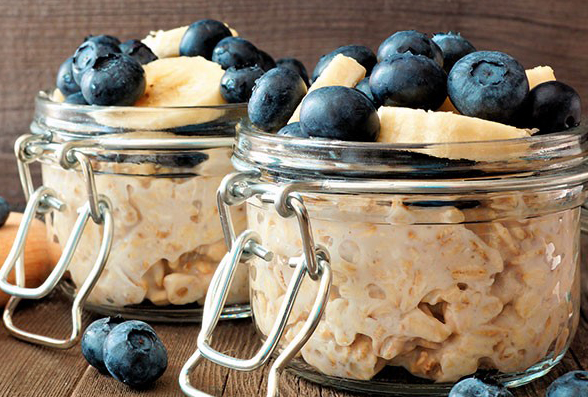Ten tips to reduce inflammation
February 6, 2019

Dipti Shah M.S., RDN, LDN, Clinical Dietitian at Northwest Community Healthcare
In simple terms, inflammation is your body’s response to a stimulus such as irritation, injury or infection. Inflammation lasting from minutes to a few days is considered acute and is a normal response. However, inflammation that lasts weeks, months or years is chronic inflammation which is not normal and poses a risk for various chronic illnesses, including cancer, diabetes and cardiovascular disease.
One of the most powerful tools to combat inflammation is your diet. By making some smart changes, you can reduce inflammation and reduce your risk of illness. Here’s what not to eat and what to eat to make those changes.
What not to eat
Refined carbohydrates
Watch out for low-fiber (white rice, white pasta) and sugar-rich foods such as desserts/baked goods, soda, packaged foods with high amounts of added sugars, candies and sweetened breakfast cereals.
Trans-fats
Avoid prepared boxed/frozen goods such as cookies, crackers, pies, biscuits, microwave popcorn, frozen pizza, fast food and vegetable shortenings.
Saturated fats
Be careful with your intake of fatty meats (beef, pork, lamb), processed meats (salami, sausages and chicken skin), full-fat milk or cheese, cream, butter, ghee and lard.
Excess omega 6 fats
Be careful about eating too much soybean, corn, safflower and sunflower oils from processed foods. A normal ratio of omega 6 to omega 3 fats is 4:1. We’re now seeing patients with increased ratios from 10:1 to 20:1 due to an increased consumption of omega 6 fats.
Too many calories
Excess caloric intake contributes to obesity. Abdominal obesity, in particular, triggers an inflammatory response in the body through various physiological mechanisms.
What to eat
Omega 3 fats
Get these from fatty fish such as salmon, sardines, tuna, mackerel and herring. You also can get them from nuts and seeds such as walnuts, flaxseed meal and chia seeds.
Polyphenols
Eat fruits and vegetables, whole grains, coffee/tea, dark chocolate and olive oil.
Prebiotics and probiotics
Eat onions, leeks, garlic, Jerusalem artichokes, chicory, kefir, yogurt, kimchi, sauerkraut and tempeh.
Ascorbic acid
It’s not just found in orange juice. Other great sources include grapefruit, kiwi, papaya, berries and pineapple.
Spices
Prepare foods and drinks with turmeric, ginger and garlic.
Mediterranean diet
This diet has been shown to reduce inflammation. It includes consumption of vegetables, fruits, whole grains, legumes, nuts, minimal intake of red meat and whole-fat dairy products, increased fish consumption and use of olive oil in cooking and preparation.
Try these 10 tips to combat inflammation
- Include fruits and vegetables in your diet daily. Fill half your plate with vegetables and snack on a fruit. Choose from a variety of colors of fruits and vegetables.
- Replace red meat with other lean protein sources such as salmon two to three times per week. Wild salmon has more omega 3s than farmed salmon. Try meatless Mondays and include plant-based protein every so often. Try lentil soup or include a variety of beans in salads, wraps or add to brown rice with herbs.
- Use olive oil in cooking and/or to make salad dressings. Extra virgin or virgin oil is a better choice than refined olive oil.
- Snack on nuts instead of chips. Avoid microwave popcorn bags and try homemade to enjoy as a snack.
- Replace refined grains with whole grains such as oatmeal or unsweetened whole grain cereal for breakfast. Substitute brown rice or quinoa for white rice and choose whole grain bread and pasta.
- Avoid or limit eating at fast-food restaurants. Go for a grilled chicken sandwich or salad with vinaigrette dressing versus ranch or other creamy dressings.
- Substitute processed foods with fresh foods often. Planning meals ahead for the week and having groceries ready makes this possible.
- Drink fewer sugar-sweetened beverages such as juice, soda, and punch and drink more water. If you prefer flavored water, do it yourself. For tips on flavoring water, refer to this article.
- Munch on dark chocolate and fresh berries for dessert. Both are loaded with antioxidants.
- Exercise and get a good night’s sleep. Coupled with a healthy diet, this may improve inflammation markers and possibly reduce your risk of many illnesses.
Start your day right with this anti-oxidant rich Blueberry & Almond Creamy Overnight Oats recipe.